#swewnt article
Text

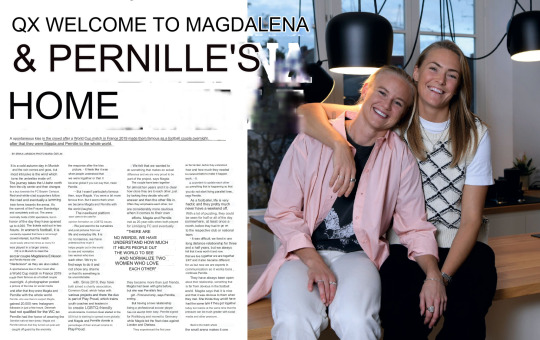
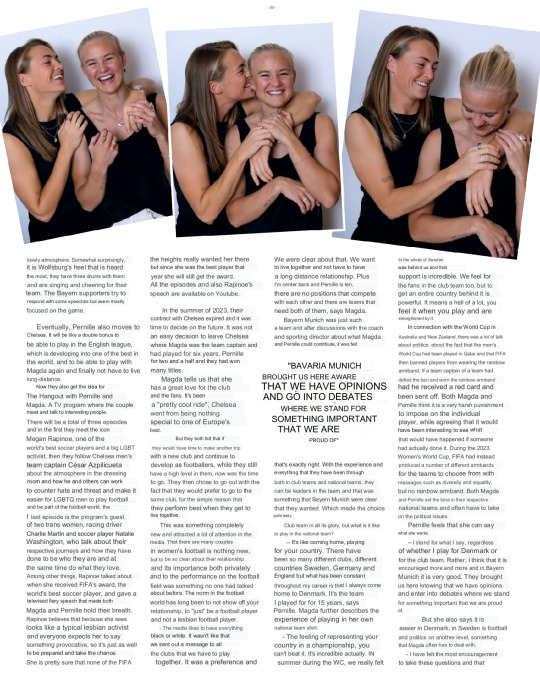

#magdalena eriksson#pernille harder#woso#swewnt#denwnt#fc bayern frauen#fcb frauen#wlw#hardersson#swewnt article
244 notes
·
View notes
Text
The secrets of the national football team: You did not know about the European Championship stars
CHESTER. The Swedish national football team is in England in search of European Championship gold. But what do we really know about the Swedish stars?Sportbladet has, with the help of people in and around the team, found out things you probably did not know about the players in the team.

Hedvig Lindahl
Has sung the national anthem outside a large food chain in Kristianstad after solemnly proclaiming who she was. Wearing a shirt that is far too short. After all, it was on her honeymoon. Likes to dance when no one is watching but has also danced on car roofs for Billy Idol. Likes to write and is no stranger to taking a stand.

Jennifer Falk
"Falken" likes animals very much and has wondered if she should not get a farm. Until she realized that there is probably a little more work with all the animals than just walking around and petting them. So to the question of what she would work with if she were not a football professional, the answer is not a farmer anyway, but a veterinarian.Then she sits inside a hidden talent, which she at first does not want to reveal. She can make a sound with her mouth. It sounds like a horn and according to her own statement, people usually find it most annoying. If she does not honk a song for children, of course. Then it is always appreciated.
Zecira Musovic
The goalkeeper is happy to clean on match days, but it does not end there. She is also involved when it comes to waste sorting. After moving to England, she has been close to plastering signs to instruct her fellow human beings on how to sort rubbish. Can also play guitar. Something that surprised several of the players when she checked in on the European Championship trip with a guitar case.
Hanna Glas
Keeps order in the collective at the Olympics. A bit of the police in that gang. A person who never has long to a smile. Together with Magdalena Eriksson and Hedvig Lindahl, is the one who spends the most time on video analysis. Loves to tinker with the ball and is one of the best dancers in the national team. A real dancing queen according to her teammates.
Emma Kullberg
She's terribly pedantic. It is not possible to move anything at her home without her discovering it. Not even five inches. She notices that immediately. Is also currently educated and made sure that Filippa Angeldahl and Nathalie Björn went on holiday.

Magdalena Eriksson
Gets stuck very easily in TV series, which often leads to her watching them stretch. Game of Thrones is just one of the series she has been obsessed with in recent years. Ended up in a messy situation when she was going to meet one of her girlfriend Pernille Harder's best friends for the first time. Eriksson would explain that she had not skied in seven years. But we all know that it can be complicated with Danish and it ended with Magda saying that she had not shit in seven years.
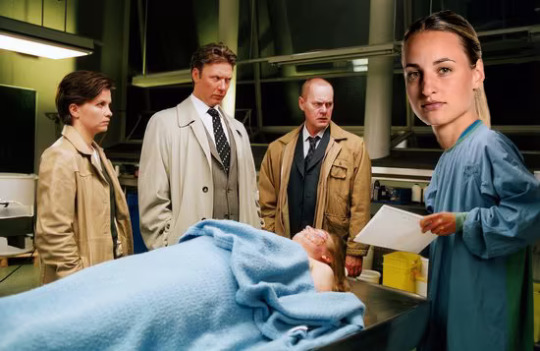
Nathalie Björn
The national team's own DJ. Got a DJ outfit as a 25-year present and the one who manages the party at the national team hotel and in the locker room (with the help of Caroline Seger and Zecira Musovic). Her dream job is autopsy and if you ask about a hidden talent, she is happy to show off the mask. A lot of games are played during the national team gatherings as well and it is said that "Nattis" as she is called loves games, but the games do not love her...

Amanda Ilestedt
Appreciates hanging out in nature in her free time when she is at home in Sweden. Has acquired a cottage in his old home areas around Sölvesborg, Also has a hunting degree, although in recent times it has not been used so frequently. Likes to try new dishes, have tried both frogs and snails in Paris.
Linda Sembrant
Is a bastard skating. Sure, it was a while ago now but the midfielder was doing figure skating for seven years and also has a past as a bandy player.
Jonna Andersson
According to information, the strong left-back is more fun than you think. Teammates testify that Andersson is quick in the mouth and has answers to speeches.
Amanda Nilden
Vänsterbacken comes from a real sports family. Little sister Matilda plays in the F-19 national team and AIK in the Damallsvenskan while little brother Charlie is big on TikTok and runs the account Fotboll24. With that in mind, it's not so strange that the choice fell on football, but it's not the only sport that Nildén is good at. She played the Swedish Championships in table tennis when she was younger, so if anyone wants resistance at the ping pong table, challenge Nildén.
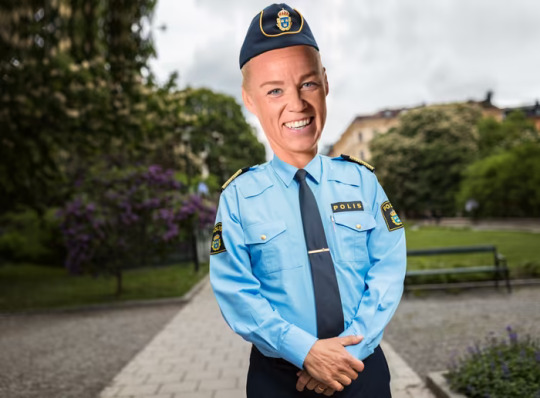
Caroline Seger
That the Swedish team captain is a person who wants order and order, no one has missed at this point? Friends are almost afraid to eat when they are at Seger's house, because if they spill or crumble, she is right in front of the vacuum cleaner and cleans away. The most important thing in the pack for England is her nail mat. And chewing gum of course. Victory chews chewing gum constantly and can take one before they get on the bus to the match and spit it out only when the match is over a sisädär 4-5 hours later. Would like to become a police officer after his career.
Kosovare Asllani
Says herself that she is obsessed with her hair. It's the star's man. Very interested in fashion and beauty. Superstitious is the Swedish superstar as well. She must wear something white when she enters the pitch and preferably enters with her right foot first. Be early to test professional life in the US and did not even tell their family, they got to read it in the newspapers. Dreaming of living in New York.
Filippa Angeldahl
Often last down to breakfast with childhood friend Nathalie Björn. Can count to five in Chinese, she thinks at least. Called "Ippe" a nickname that is a variant of Pippi, as the midfielder wanted to be Astrid Lindgren's character as a youngster.
Hanna Bennison
Youngest in the national team. Usually placed next to Caroline Seger in the dressing room. There is a lot of sport in the talent's life and if she gets free time she likes to play basketball or paddle. A bit problematic with the move to England just because there are hardly any paddle courts there ...

Elin Rubensson
In addition to football, Elin Rubensson likes to devote herself to interior design. Some may already know this, considering that she runs an Instagram account with a focus on just that. There is also a piano sometimes and the fact is that Rubensson is good at playing it. She also played the flute when she was young. Another profession, which alludes to the interest in interior design, that Rubensson could imagine is a broker.
Sofia Jakobsson
Interested in fashion. So maybe some people are surprised when teammates testify that Jakobsson keeps a close eye on trees. She can apparently point everyone out. Something her father taught her.Was very good at athletics when she was younger. Above all, long jump, high jump and running, so maybe she could have become a new Carolina Klüft if she had not chosen football. After all, she went to high school in Växjö during Klüft's heyday.
Johanna Rytting Kaneryd
The explosive right rider may be a championship debutant, but she comes in with speed and fan in the gang. She likes to listen to Swedish hip hop and she has two hidden talents. "Jojo", as she is called, can both wave her ears and dance belly dance. If it is European Championship gold, she promises to offer a belly dance.
Stina Blackstenius
A winning skull without equal. Has often ended up in duels with big brother Oscar and little sister Nina. Among other things, there is a scar just above her left eyebrow that testifies to when she would do a jump nod á la Henrik Larsson in the kitchen. It just happened to be a kitchen chair in the way...
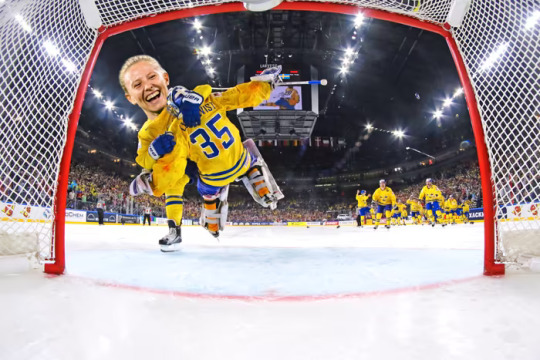
Rebecka Blomqvist
As a child, Blomqvist had his career ready for him. She was to become a hockey professional in Germany. Now she is admittedly a professional in Wolfsburg, but not in hockey. And luckily for her, she can barely skate. However, she is good at riding and has competed in horse jumping.
Lina Hurtig
Is according to his own statement not very good at much. At home, it is Mrs. Lisa who is in charge of the food, but it seems that Lina is very helpful when it comes to both cleaning and dishes. Unclear what it would look like at home with the couple Hurtig without her. I like to play golf and would have liked to have become a golf professional if it had not been for football. Driving a car, on the other hand, she is at least the best in the family at. During a trip abroad, Hurtig got a fever. Woke up at 23 completely convinced it was time to check out. If she was met by surprised looks at the reception? Jajamen.

Fridolina Rolfö
The Barcelona star goes to sleep. Rolfö is a connoisseur who likes food and trying new restaurants. Among other things, she has eaten zebra at an African restaurant in Munich, but prefers to avoid caviar. Has a past in banking and may be a future sports director, but we hope it will take a few more years.
Olivia Schough
No one has missed that she can sing, has she? She's obsessed with laughing. If anyone is wondering where she is during a national team gathering, the safest place to look is with the physiotherapists. Schough is said to be the one who spends the most time there, and who does not like a nice massage?
47 notes
·
View notes
Note
Based on Zeciras story, SWEWNT comes together tomorrow and not today.
Yeah, I think some one from the team or an article mentioned tomorrow as well. So exciting that it’s all coming together now!!!
1 note
·
View note
Text
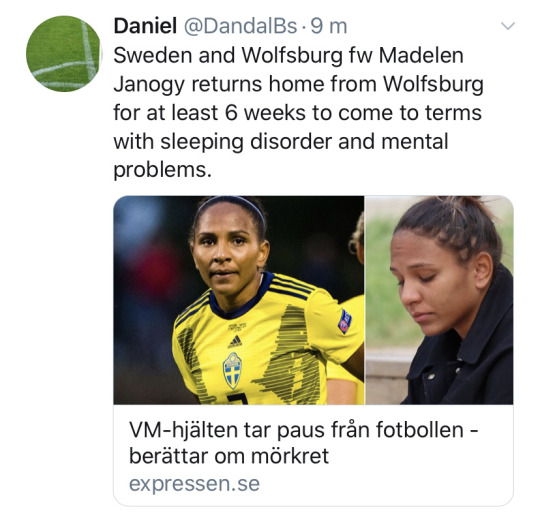
Sad to hear these news, but I’m glad she’s making this decision for her own wellbeing. Krya på dig Madde!
39 notes
·
View notes
Note
Hey! Did you see that the swewnt will kneel before the game on Wednesday? Lindahl said it in an article with one of Sweden’s biggest newspapers. Do you think the uswnt will do anything at all, except not singing the anthem?
Yeah i saw, happy they will do it.
I think the US won't, simply because of the assholes on the team. It's not going to be unified which means the black players will be put on blast again.
I will try to say this as best as possible, sorry if it's not very eloquent. A protest is great, but athletes don't go to the Olympics to protest, they go there to perform at the best of their abilities and hopefully win. A protest is something they can do if they are in the right spot mentally and if they are supported.
Players like Crystal and Christen (also Pinoe specifically) are hit with so much abuse it's insane. I don't know how hard the abuse hits Crystal and Christen (or if they even see it), but it would be very understandable if players chose not to put themselves out there while knowing they won't be backed by the team.
I think we all know this team is never going to be unified and personally it kinda feels like they have stopped pulling on a dead horse. I think the most important thing is that we know certain players definitely do listen to their black teammates while we also know who doesn't give a damn.
I trust that the players i know, listen, but also that there is a mental aspect to doing this during the Olympics (while knowing it won't be unified) that they won't overlook.
#ask#uswnt#christen press#megan rapinoe#crystal dunn#the Olympics in part are also just going to be extremely stressful in itself and that's without the pressure of protesting#For most athletes it will be 1) performance 2) protesting not the other way around#in order to protest it shouldn't influence your performance because that is why you're at the olympics
24 notes
·
View notes
Note
The Google translation seems fine!
For context Anna is a young football players, same age as ZM(?), who has been called up for swewnt some times. She has talked about some serious depression she started to develop a few years ago and how important it is for everyone really, but in this case, footballers, ro seek professional help. She felt that her old club Linköping didn’t help her enough but that she god help when the NT coaches told her to
I’ve heard of Anna, but not of her story about depression. I’m very happy that she was able to get the help she needed and the NT coaches pushed her to do so. Also it’s great to hear that she’s been seemingly able to open up about her experience and talk about it and be vulnerable about things that are very hard to talk about. It may very well help other people and other athletes seek their own support and maybe get to the point to talk out their mental health battles as well. To help remove the “taboo,” around it as Zecira has said in her article.
It is a shame to hear that Linköping wasn’t able to give her the support or help she needed. Hopefully with players like her speaking up, clubs will push to do better with mental health support within the club and national team wise. It’s certainly one of the most important thing players need in my opinion.
3 notes
·
View notes
Note
Here is a longer version of that IG post with Magda, the reporter asked several swewnt players who has the biggest "vinnarskalle" (i think there's no word for it in english but it basically means a person who always has to win) and they all said Magda (there are two vids in the article), in the 2nd vid she says that it was worse when she was younger 😂 svt(.)se/sport/fotboll/vinnarskallen-eriksson-det-brinner-i-brostet
THIS IS SO CUTE SHE LOOKS SO GOOD
24 notes
·
View notes
Text

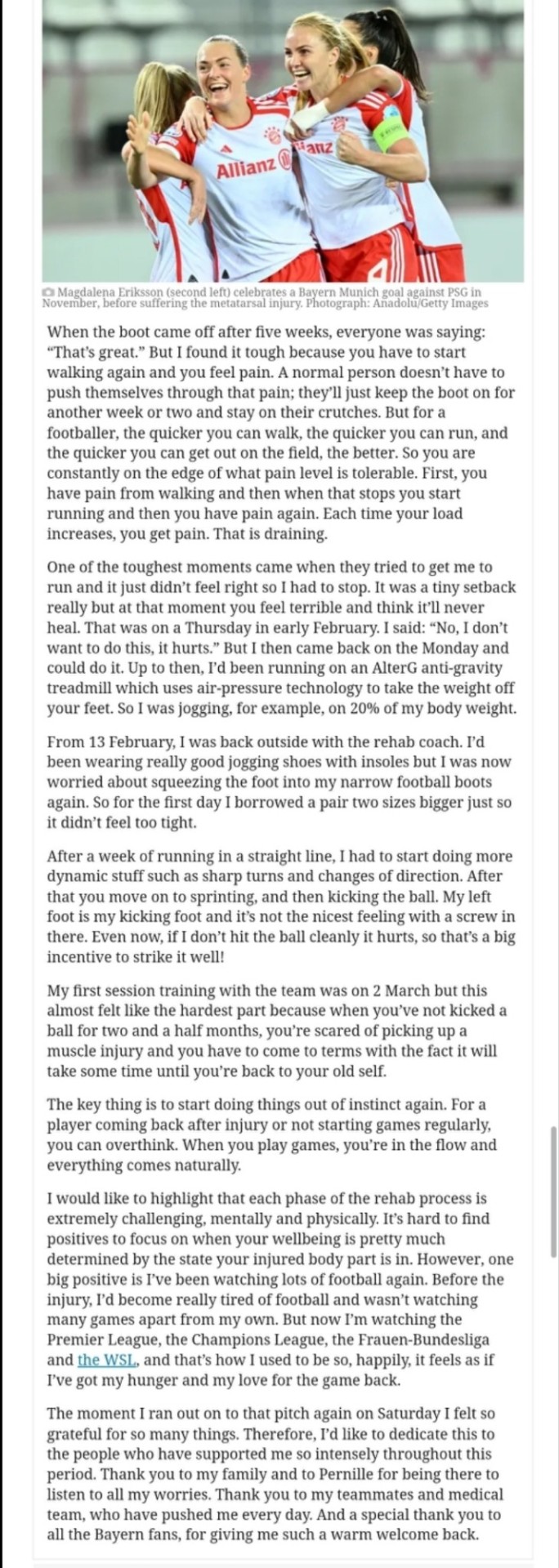
#new bean article!!!#magdalena eriksson#swewnt#pernille harder#woso#fc bayern frauen#fcb frauen#swewnt article
76 notes
·
View notes
Note
I haven't read it yet so maybe it's just a summary from another interview or something, but I just saw this (it's in German)
https://twitter.com/queer_de/status/1739592775115366576
looks like a new interview!!!
Lesbian professional couple: "Women's football has always been a safe space"
Pernille Harder and Magdalena Eriksson from FC Bayern are not only top footballers. For the gay couple, their commitment to the LGBTI community is also important. An interview about kissing and fighting.
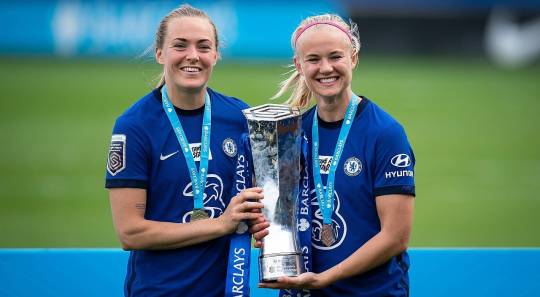
By Martin Moravec, dpa
Today, 11:22 a.m. 9 Min.
The world-class footballers Pernille Harder (31) and Magdalena Eriksson (30) have been playing for FC Bayern Munich since this summer. Together. This was also very important for the Danish-Swedish couple in their private lives (queer.de reported).
In an interview with the German Press Agency, Harder, a striker who has just recovered, and Eriksson, a defender who is currently injured, talk about communication in a long-distance relationship, Tetris while disposing of waste and two kisses that made history.
Ms. Eriksson, Ms. Harder, you met ten years ago at Linköpings FC in Sweden. What was your first impression of each other?
Eriksson: I thought Pernille was great as a football player. She really impressed me, she was next level for me. I had never played with a player as good as her before. I was also surprised at how modest she was, even though she had so much talent. And she's a nice person too (laughs). We became good friends and then had a mutual group of friends who did a lot together.
Harder: We are both very interested in mathematics and then we took a math course together. We got to know each other even better. After a few months we became a couple.
You were in a long-distance relationship for several years. How difficult was that for you as a couple?
Harder: It was difficult. You really have to work hard to make it work. But the time we were apart was also good for our relationship. Luckily, we developed in the same direction. The fact that we lived apart for three and a half years and are still together shows that our relationship is really deep and resilient. We both felt that this relationship was worth fighting for, even if we often only saw each other once a month. Magda often flew from London to Wolfsburg for a day and a half.
Eriksson: You learn a lot about communication when you have a long-distance relationship, because that's the key. If you don't communicate, you actually have nothing because you don't see each other, you're not physically close. We've learned over the years that we had to get better at talking to each other and expressing our feelings with words. That helped us grow into our relationship. We communicate much better now than before our long-distance relationship. We have also become much stronger in this respect.
The distance has disappeared at Chelsea FC, where they played together from 2020 to 2023, and now also at FC Bayern Munich. Did you have to get used to being so close to each other again?
Eriksson: It really went from zero to 100 (laughs).
Harder: The fact that we lived together for two years before I went to Wolfsburg in 2017 meant that we knew what our routines were.
Eriksson: We had to sort out more practical things: who does the dishes, who does the laundry?
Harder: And who takes out the garbage... (laughs)
Eriksson: In a relationship, one partner always thinks that they have more to do with the housework than the other.
How do you divide it up?
Eriksson: In England I did the dishes and Pernille took out the garbage. Now it's more balanced. But there was a point where I thought she was playing Tetris with the garbage, she was trying so hard to balance garbage in the garbage can just so she didn't have to take it out straight away (laughs).
Harder: It's funny how people can have different opinions about washing up, whether something is already clean or still not (laughs). But we're of the same opinion now. Apart from that, it was completely natural to get back into a common rhythm.
Can you imagine leaving your job again to change clubs?
Harder: I really like it here. FC Bayern is a great club, Munich is a great city. I'm enjoying it, even though I've been injured for two months now. We have a contract for the next three years and I can imagine staying here longer.
Eriksson: It's the first time we've moved to a new club together. It's really nice to have the security of having Pernille with me. Football can be quite lonely when you're away from your family and maybe your partner. Having started a new adventure here with her is inspiring and cool. Like Pernille, I couldn't wish for a better environment.
In 2019 during the World Cup, you kissed in the stadium after Eriksson's Sweden team won against Canada. It was just a kiss, but the photo of this public kiss caused a stir around the world.
Harder: I didn't realize at first that the photo had such a wow effect because I was simply at the World Cup to support Magda. It wasn't our first public kiss after a game either, we had kissed a few times before (laughs). The photo quickly attracted a lot of attention on social media, became popular and attracted a lot of positive comments. It was interesting for me to see how much society apparently needed this image.
Eriksson: We were surprised at how necessary such a photo was for football. We had also lived in our own bubble before and had been open about our relationship for a long time. But after that special moment, we realized how important it is to be visible, to do things that come naturally to us and to be proud of it. I think the best way to be an example to others is to express yourself and be yourself. That's exactly what we did. I'm happy and proud that the photo of our kiss became such a big topic because it was obviously something that football really needed.
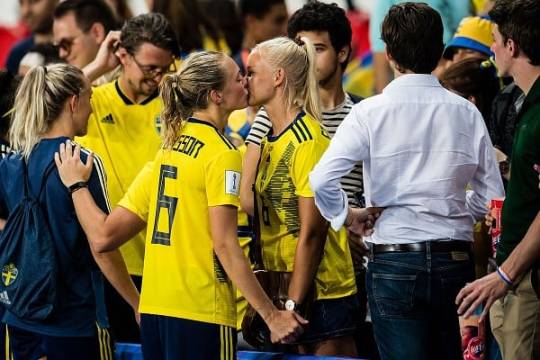
As a teenager, did you have role models that you could look up to, that made you feel like your sexuality was perfectly fine the way it is?
Eriksson: My older sister Amanda has always been very important to me. She encouraged me to be comfortable with who I am and not to think about what others might think of me. Growing up, she was always this calming voice that said, 'You are good the way you are. Be yourself.' I came out when I was 16, my sister was very important to me in the early years so that I didn't feel like an outsider.
Harder: My parents, Annie and Mogens, always let me know that it doesn't matter who I love or who I bring home. They are happy as long as I am happy. I don't know if they expected me to bring a girl home one day (laughs), but they always made me feel like I could be who I am. I was really lucky in that respect.
How far do you think football has come in terms of diversity and inclusion for women and men today?
Eriksson: Women's football has always been a safe space for me and a place where I can be myself. I never felt like I had to hide any part of my sexuality or myself. I have never been discriminated against by fans because of my sexuality either.
Harder: That applies to me too. I never felt like I had to hide, I can always be myself in football.
Eriksson: There are more and more players who use their platforms and speak out on social issues. But we still have a lot of work ahead of us. We have to continue to create this safe space so that men's football becomes even more diverse, including in terms of sexual orientation.
Harder: The next generation is growing up in an environment of increasing acceptance, which makes them more open. I therefore hope that men's football can continue to develop as a traditional sport. Unfortunately, there will probably still be people in the next ten or 20 years who are not happy about a gay man playing football.
Is it easier to discuss such topics with younger people?
Harder: I think that when you are younger, your own values are not yet completely set, so you have the opportunity to provide input on what can and cannot be valuable for an open society. Older generations, on the other hand, often have their values and opinions on certain things already set. Then it is more difficult to change your attitude.
Do you find it strange that sexual openness is normal in women's football, but not in men's football?
Eriksson: Women's football is a much younger sport. A lot has become entrenched in traditional men's football over the course of more than 100 years. Women's football is therefore more influenced by modern views. I hope that the more women's football grows, the more men's football can learn from it in certain aspects.
Your famous photo was taken at the 2019 World Cup. In 2023 at the World Cup there was a contrary photo when the now resigned Spanish association boss Luis Rubiales kissed national player Jennifer Hermoso on the mouth at the award ceremony. Hermoso saw the kiss as an act of violence, Rubiales, who also has to answer to the court, speaks of mutual consent. What do you think about that?
Eriksson: They are the two ends of a spectrum. I always try to see things positively, even in a situation like this. Something has actually changed for the better for the Spanish national team since then. They started a fight against their association almost a year ago in which they wanted to bring about a change in the culture towards more safety and respect. They have now achieved that. I don't know if it would have been possible without this attack.
Harder: The fact that the change has taken place shows how far we have come in society, how we are moving in the right direction. We do something when something unacceptable happens. The Spanish players fought for their cause, which was noticed worldwide, and brought about change.
Eriksson: A kiss like the one at the World Cup this year might not have been a big deal ten years ago because times were different then and the team might not have felt they were in a position to openly address and criticize such a disgusting act. That kiss may have felt like a big step backwards for women's football at the time, but everything that has happened since then shows that we are becoming more and more confident and can really make our voices heard if we want to.
#wows we've been blessed this morning#magdalena eriksson#pernille harder#fc bayern frauen#fcb frauen#woso#swewnt#denwnt#swewnt article#hardersson
76 notes
·
View notes
Text
Eriksson on the first time at Bayern Munich: "It has felt good"
GOTHENBURG. Magdalena Eriksson left Chelsea for Bayern Munich.
The centre-back now talks about his first time at the club.
- Now I'm in it and it's felt good, she says.
Magdalena Eriksson left Chelsea this summer for a game with the German giant Bayern Munich. Now the season with league games and cup games has also really started.
At a press conference ahead of Sweden's meeting with Switzerland, the Swedish centre-back opens up about his first time at his new club.
- The body is back and it has been fun to have a longer period with matches and a lot of training. We've only had one match a week, which is quite unusual and nice to just get to train and get into everything. Now I know everything and am in it and it has felt good, she says.
The season has gotten off to an okay start for Bayern Munich, after five rounds played, they are in third place in the league after winning three games and drawing two.
- It is clear that we would have liked to be 100 percent and win all matches. But it has been stable and a lot of fun. We have a good foundation that we can work on now, she says.
One of the cross matches was against Eintracht Frankfurt when they played at the Allianz Arena, an arena that has a capacity for just over 75,000 spectators, just over 73,000 more than the Bayern Campus where the ladies usually play.
- It was really cool, it was a very cool experience. That said, it was just a shame we couldn't win that game, it would have made it absolutely perfect but it was a great experience. The only sad thing is that Pernille (Harder eds. note) is injured and that she did not get to experience that match.
How do you deal with such a situation?
- I know how much Pernille would have liked to play that match and there you have to be a support and support her at the same time as you charge for your own match and have to perform and heal that part. It's something we're used to, we've taken turns being a little injured and healthy and helping each other. It is very sad for Pernille, but she is fighting and what I can do is to be there as support, she concludes.
59 notes
·
View notes
Text
Double vision
Partners on and off the pitch, Bayern pair Pernille Harder and Magdalena Eriksson have firm convictions on all the big topics facing women’s football in an era of exciting growth and mounting pressures
In a room at Bayern München’s training ground, Magdalena Eriksson and Pernille Harder are talking bicycles. One of their favourite things about Munich, the place they have both called home since making the switch last summer from Chelsea to Bayern, is the ease of travel for cyclists in the Bavarian capital.
Eriksson: “Now we live quite centrally so we can use our bikes to get anywhere.”
Harder: “It is a bit easier to bike here in Munich than in London.”
Magda: “We even took our bikes to Oktoberfest once.”
Pernille (laughs): “We were biking straight!”
This is the beauty of an interview with the pair (even one conducted over Zoom, as this one is): you raise a subject and they bounce it around between them, their insights and reflections interspersed with lighter moments and laughter. And, as arguably their sport’s highest-profile couple – Harder is a two-time UEFA Women’s Player of the Year, Eriksson a Sweden stalwart – they have plenty to say.
Both care deeply about matters on and off the football pitch. They are members of UEFA’s Football Board (of which more later), they support the Common Goal project – pledging one per cent of their salaries to support football charities – and on top of that they are advocates for the LGBTQ+ community.
But, first, back to finding their feet in Munich, where the duo bring serious know-how to a Bayern side with big ambitions, despite an early exit from the Champions League in January. In Harder’s case, the Denmark forward knew German football already from her three years with Wolfsburg between 2017 and 2020. For Eriksson, after six seasons in England with Chelsea, this is an entirely new experience – which is exactly what she was hoping for.
“I think that’s how we are as people,” says the former Blues captain. “A reason why we moved is I am really curious about a new culture and a new environment.” From the sounds of things, that decision is paying off too. Away from the pitch, she is enamoured of the local coffee shops; on it, she has been impressed by the way “a lot of the girls take responsibility around the dressing room and with how things should work around the team. There’s quite a clear structure of different responsibilities, and the players take ownership of that. That’s something more like how it was in Sweden, and not at all in England. It makes us take responsibility and it’s something I appreciate.”
As for Harder, she elaborates on the unique culture of Germany’s biggest football club – one which attempts to marry sustained success with humility. “It really is a club where you have to work hard, be humble but also know your worth,” she says. “It’s a bit weird. There is no arrogance: we know we’re good, we know we are a big club, but we know we also have to work hard. There’s a lot of respect for each other, and it’s not only in our team. When we go to the campus and meet the academy boys or some of the other staff, you have the respect. You treat others the way you want to be treated, and that’s a really good value which aligns with my values.”
Now both in their thirties – Eriksson is 30, Harder 31 – they knew the women’s game before its lift-off moments of recent years. Thus, they bring a helpful sense of perspective to any discussion of its development, and how it might evolve in years to come.
If female footballers today have opportunities beyond the dreams of previous generations, they face pressures unknown by their predecessors too, as Eriksson explains. “I think there are two sides to every story. Maybe, when we grew up, there wasn’t that much pressure, but with a growing platform [and how] the women’s game is growing, there is also growing pressure. The fans are growing, social media is growing, so there are two sides to it.
“We can really help the younger generation of today to deal with that kind of pressure, which you have to be able to manage as a footballer,” she adds. “You have to find what you need to focus on and what you should really just shut off and not focus on. You need to find the people that you talk football with and the people’s opinions you shouldn’t care about.”
Harder picks up the thread: “When we were younger, there was only one focus and that was football – to get better and to win. It was just football: that was the thing we played for. Now, there is so much more and, with social media, it’s also about a lot of individual awards, individual recognition, when the focus should be on the team. And I think it’s easier to be distracted [from] having that right focus. That’s something important to think about…”
“And to remind yourself about on a daily basis,” Eriksson cuts in. “And also to spread that within the team – that it’s a team sport and the team wins, the team loses, the team scores, the team concedes. All of those things.”
“Except when Magda scores!” adds Harder with a laugh, teasing her partner over a goal she scored in the week of this interview.
Jokes aside, the pair obviously think a lot about the game, which makes them natural choices to sit on UEFA’s Football Board, the body set up last year to draw on the knowledge of current and former players and elite coaches in the shaping of women’s football. For Eriksson, it’s “inspiring to know you get a direct line to some really big decision-makers”, and the welfare of players – “the football calendar and making football sustainable” – is something both women are keen to highlight.
“We all want a long career, but sometimes if you have to play all the time and have no break, that will shorten it,” says Harder. “Often, we have tournaments in the middle of summer or late summer, so we have four or five weeks before the tournament for our summer holiday, but then we don’t really have that time off because you train to prepare for the World Cup. And then, after the World Cup, [Magda] had ten days and I had two weeks off, and then you just go straight back into it. So, you have to put the tournaments earlier so you have at least four weeks after when you can really, medically, relax and be ready for the new season. Everything else is just too hard mentally and for the body.”
“It was the same last year with the EURO and the amount of injuries we saw after,” says Eriksson, who, ironically, just days after our interview, suffered a metatarsal fracture in her left foot. “Again, [it was] a couple of weeks off for a few, even less for others, and then you are straight back into a high-performance environment where you immediately have to play games. Finding a balance in the calendar where you get the breaks at the right time and don’t have too many games in short spaces of time is the most important thing.
“The fact we are starting now to do research on women’s bodies and women’s players is the first step. With the way we train, the way we train conditioning, everything is based on research on men’s football players, men’s athletes. We don’t know if it’s the same for us. Should we train more or less, or in a different way?”
From Harder comes further food for thought. “When you think about it, we use the same football as the men. It isn’t that I want to change it, but it’s also the same size of pitch and we don’t have the same body; we don’t have the same strength in the muscles. I don’t know the impact from every time I shoot or make a pass, if that’s actually a bigger impact on my muscles than it is on a man’s. That’s something I think it would be quite interesting to look at. I don’t know if it’s something we want to change and have a lighter ball. Maybe it’s just small percentages of how heavy the ball is that could change it.”
“There is rivalry in women’s football, but respect, love and joy always come first”
It’s fascinating to hear this to and fro on the physical side of the game they love, and it’s not the only challenge they see.
We talk too about misogyny and what Harder describes as “a mindset of some people who don’t want to change [and see] that women can also play football, women can also be commentating on men’s football, that they also have knowledge about football. They have their mindset and their values about it and it’s really difficult for them to change.”
What is not in question is that women’s football has taken giant steps already in terms of status and recognition. As the commercial opportunities grow, however, neither woman wants to lose the things that make it different from the men’s game. Eriksson recalls the celebratory atmosphere in Australia and New Zealand during the last Women’s World Cup; she cites too the friendly fan dynamics in the club realm.
“We are coming off the back of a fantastic World Cup where there were only positive emotions connected to the games. Of course, some teams win, some teams lose – that’s part of football – but the way the tournament was held and the fan culture, that was amazing. So much positivity, so much joy, and that’s everywhere in women’s football fan culture right at the moment. That is what we want to keep. In women’s football, that rivalry is still there, but the respect, the love and the joy is always what comes first.”
The last word comes from Harder, ever the finisher. “It won’t be easy to keep it like that, but that at least is the aim.”
#great interview#magdalena eriksson#pernille harder#woso#fc bayern frauen#fcb frauen#swewnt#denwnt#hardersson#wlw#swewnt article
52 notes
·
View notes
Note
https://www.instagram.com/p/CvrgBQct8Jw/
😂😅

#oh wow 😅#swewnt#swewnt article#caroline seger#johanna rytting kaneryd#zecira musovic#nathalie bjorn#nathalie björn#filippa angeldahl#hanna bennison#fridolina rolfo#fridolina rolfö#olivia schough#rebecka blomqvist
119 notes
·
View notes
Note
M's newest column
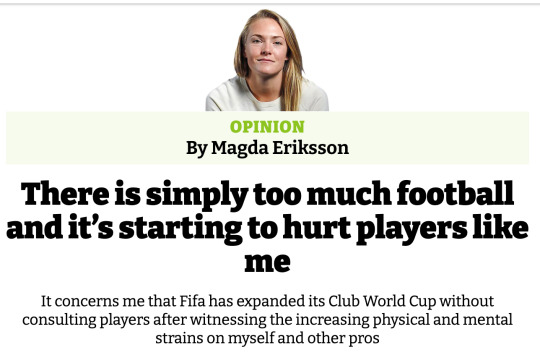

Ive been thinking this week about Fifa’s plans to expand the Club World Cup and create a Women’s Club World Cup and wondering where the welfare of players ranks in their priorities.
At a time when we’re seeing so many serious injuries to top women players I found it alarming that they did not consult the leagues or the players. Instead, Fifa president Gianni Infantino just announced it out of the blue.
Fifpro, the players’ union, were right to complain about the lack of consultation. I’m all for new ideas but you have to think about the players. If you just add more and more games, there’ll come a time when it just becomes too much.
From my personal viewpoint, if Chelsea were to win the Champions League, I’d love to get the chance to play the best teams from other continents. I can also see the benefit of making the game less Eurocentric. However, you have to talk to the players’ union first.
As for a 32-team tournament for the men, the loading is already extreme for them and I’m intrigued to see how they cope when the Premier League returns on Boxing Day, just a week after the World Cup final and two weeks after England’s quarter-final exit.
When I think back to last summer after the Euro, it took me at least a week for my mind to stop playing back the images of all I’d experienced. For us, there was the trauma of losing a semi-final 4-0 and feeling humiliated. Emotionally that was tough and for three days I lay on a sunbed and tried to read a book but I just could not focus on the letters.
My head was still in the tournament, processing all I’d been through, and I needed at least 10 days to start feeling enthused about the new season. Then, when I went back into Chelsea, I had issues with tendinopathy – inflammation in my hamstring and achilles, which is the product of overloading. Every footballer has it somewhere once they reach a certain age, yet it was clear to me my body was struggling.
I’ve got friends in the Sweden national team who tell me they are still feeling fatigued from the Euro and the news this week about Vivianne Miedema’s ACL rupture – less than a month after Beth Mead suffered the same injury – only accentuates the need to give more serious thought to player welfare in the women’s game.
This isn’t just about Fifa either. We have so much to improve on regarding knowledge of women’s bodies and loading. At Chelsea we’re lucky as we have a big squad and they’re very good at monitoring load and thinking about physical and mental welfare.
However, only a handful of women’s clubs have it like this; few others can afford it. Before I came to Chelsea, I’d never worked with full-time physios, for example.
It’s just my hypothesis but I wonder whether women players might be less fragile if we’d received better medical attention early in our careers. It doesn’t help that all the research has been based on men’s bodies.
More women-specific research is required to understand how to train and load us. At Chelsea we’ve just taken part in a study by a woman who is scanning the feet of female footballers and collecting data about their foot shape, and this is what we need more of before Fifa start adding even more games.
I would also question the timing of women’s tournaments, which tend to run until late in the summer. Next year’s World Cup will start on 20 July and end on 20 August. It means you get a few weeks off before the tournament but you end up wanting to stay fit and doing some training on your own. It’s afterwards when you need the break and, as I’ve mentioned above, I don’t think two weeks is enough.
Ultimately, there are moments when your body says “enough” and I say this from personal experience. I look back to December last year when I suffered an ankle injury in a Champions League game at Wolfsburg, which ruled me out for three months.
In hindsight, I’m not surprised at all as I remember the way I felt in that period, just trying to get through games. With Sweden I’d got to the final of the Olympics the previous August but hadn’t had enough time to recover and then we had the challenge of the inaugural group stage of the Champions League, which meant more travel and more tough games.
I was tired and moody and just thinking, “When’s the break coming?”. I really feel my injury came as a result of that. I jumped and landed badly and damaged ligaments as well as sustaining bone bruising and a small fracture. It felt to me that my brain was simply too tired.
A year on, sadly, it’s my partner Pernille’s turn to be injured. Thankfully it wasn’t an ACL in her case but she had an operation on her hamstring last month and in the first few weeks afterwards needed help with everything, including putting on her socks and shoes. This is the personal cost that players face and it’s sad to see a loved one like that – yet another reason, therefore, why I feel so passionate about protecting my fellow players.
#this might be her best one yet#magdalena eriksson#swewnt article#pernille harder#chelsea fcw#vivianne miedema#beth mead#woso
339 notes
·
View notes
Text
#magdalena eriksson#pernille harder#hardersson#fc bayern frauen#fcb frauen#swewnt article#swewnt#denwnt
53 notes
·
View notes
Note
https://www.theguardian.com/football/2024/feb/22/how-to-stop-spain-and-aitana-bonmati-moving-the-goalposts-nations-league
How to stop Spain and Aitana Bonmatí. Well, how to try at least
for my first column for Moving the Goalposts I was asked: how do you beat Spain? Well, it is easier said than done. When my Sweden team faced them in Gothenburg in September I had a moment which felt like an out-of-body experience: I could see clearly which kinds of balls they wanted to play and the patterns of their passes. They like to play diagonal passes from the No 6 up to the No 8s and, from there, switch the play. The problem, though, was reacting to it as they are just so quick.
I’ve seen them close up probably more than I’d have liked in the past year – three times, in fact, as we lost a World Cup semi-final to them and then suffered late defeats in both our Nations League group games against them.
Now it is time for the Nations League semi-finals. France face Germany and the Netherlands have the unenviable task of taking on Spain. When I think about what makes them so formidable, I’d start with two things: the amount of quality players and that winning culture, which begins with their youth national teams. They’ve won four of the last five Under-19 Euros and been to the final in seven of the last eight Under-17 Euros. In other words, just reaching a tournament is not enough – their attitude is “we’re going to be there until the end”. The same goes at club level with Barcelona.
In fairness, with Sweden we were close in both Nations League group games: we interrupted their rhythm and were close to getting a draw. We like to press high and force mistakes and, at home, I scored the opening goal and we managed to disrupt them quite well. However, we didn’t have energy to do it for the whole game and lost 3-2.
In Málaga we played a new 3-5-2 formation as we wanted to get a higher press on their centre-backs and also – with our three centre-backs – to cover the inner corridors that they are so good at exploiting. We won the ball high and led 3-1 at half-time. But after an hour a little player called Aitana Bonmatí came on and changed the game, and we ended up losing 5-3.

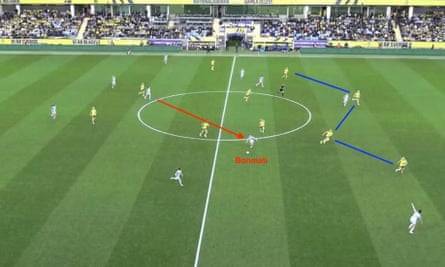

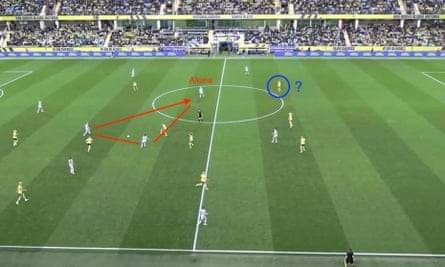
View image in fullscreenThis is an example with Alexia Putellas this time positioning herself in the same area, making it really difficult for us to decide who should mark her. Photograph: SvFF
Another player I’d like to mention is Salma Paralluelo, who has added a new dimension to Spain’s game. She is so quick that you can’t just have a high line against them as you might get caught out behind instead. Previously, Spain had forwards coming short so you could keep the team really compact but with Paralluelo it makes that really difficult.
Spain’s opponents in Seville on Friday, the Netherlands, have resilience and some good attacking players but the challenge will be to play the perfect game for 90 minutes. When you have the energy, you can press Spain and get the ball in good areas but they’re so good at tiring teams out, as they showed in the World Cup final against England. You retreat into a mid or low block and then you are just chasing and looking at what they are doing. And that means that when you do win the ball, it is hard to have ideas and keep hold of it – they are so quick at trying to regain it, while you are still tired.
If there is one weakness in Spain, it is the fact they do concede goals – nine in six Nations League group games. At Chelsea we always had the mantra that goals win you games but defence wins you championships and, as a defender, I like to believe that is true. That said, Spain scored 23 at the other end so maybe they have cracked the code – as long as you score an extreme amount of goals then it is OK not to be so solid. However, that could be where other teams have a chance.
As for the other semi-final between France and Germany, the French had a strong group stage, dropping just two points and conceding only one goal. They are a team with a core of experience as well as individual flair and they have Marie-Antoinette Katoto looking dangerous again after her long-term injury. However, as a Bayern Munich player I hope my German friends will go through and I do think they have grown as a team. Since moving to Bayern I have noticed that German football has a similarity with Swedish culture in that everyone is expected to work for the team. An example is Klara Bühl, my Bayern colleague, who is one of their key attacking players but still works really hard for the team. With that attitude, I fancy them to reach the final.
Credit to Spain campaigners
It is not just on the pitch that I admire Spain. As a member of FifPro’s global players’ council, I have followed their story off the pitch too and before the game in September, I managed to say, very briefly, how much I respected them for the way they have stood up and demanded changes from their FA – and got them. The week leading up to that match they had had late-night meetings, little sleep and plenty of stress yet still managed to come to Gothenburg and play a really good game. I am impressed with how, between their struggles, they have managed to stay focused on their football and win a World Cup.
Nations League format should follow men’s example
On a broader note about this first Women’s Nations League, it has been a welcome addition even if, timing-wise, it was tough from a player’s perspective to regroup and go again so soon after the World Cup. However, when I look at the fact Spain and France each play their semi-final at home, I do believe it would have been better to follow the men’s example and have a ‘final four’ event in just one place. It would have been a better spectacle and would make more sense from a commercial perspective – not to mention a sporting one as it is a huge advantage for Spain and France to each have a home semi-final.
23 notes
·
View notes
Text
Magdalena Eriksson on taboo in the sports world: "Working for many"
It is 2023 and we are still working to remove the stigma and taboo around talking about periods, Magdalena Eriksson tells a group of 15-year-olds one afternoon.
A stigma she herself did not wish existed when she grew up as a young soccer player.

It is during a training session in the middle of June that Sickla IF's 15-year-old girls are visited by Magdalena Eriksson. The Swedish national team player, who plays for Bayern Munich every day, grew up in a time where periods were somewhat embarrassing and therefore not discussed. Something she wants today's young girls not to have to go through.
- We must dare to talk about this. We must educate girls and coaches in how the menstrual cycle can affect girls' sports performance, says the 29-year-old.
The subject has been on the table for a few years, but despite that, Eriksson believes that we are "far from finished".
- Clubs and associations must start taking responsibility. You have to understand as an association that you have a big responsibility in training your coaches.
The Sickla team's coach Olle Linder, who is surprised that there is not much talk about the subject, felt that the training initially had a "closed atmosphere".
- Even if a famous woman comes here and says the word period, the girls still think it's shitty. It just shows that it is important to dare to talk more about it, says Linder.
Magdalena Eriksson's experiences of talking about periods changed when she came to Chelsea. The English team has been at the forefront by adapting training to the players' menstrual cycle for a few years now.
This is thanks to the team's coach Emma Hayes.
- I was 24 years old when Hayes made me understand how all these things are connected. When we started talking about Chelsea, we were very unique. We were probably among the first to start talking about periods and sports performance.
The national team star believes that the topic is still taboo, even though you can see that more and more national team players have raised the issue and more teams have embraced the topic.
- It's probably old habits and customs that live on in our culture. Menstruation is also taboo in many cultures.
Research shows: Many people stop playing sports
By collaborating with Libresse's initiative Befriend your body, the national team star wants to participate in the fight for increased self-esteem as well as breaking taboos and normalizing menstruation for young girls in the sports world.
Through several different surveys, the initiators of the project have been able to see that many girls stop playing sports when they are around 15 years old.
- It is important to become friends with your body, accept it and hopefully love it so that you can continue playing sports, says Oda Mustorp, brand manager at Libresse and one of the initiators of the project.
The goal, according to Oda Mustorp, is to be "the big sister who guides how to get to know your body and can maximize training during the four phases of the menstrual cycle".
More and more club teams and national teams have also chosen to replace their white shorts with other colors, so that the players don't have to worry about bleeding through. It is something that 29-year-old Magdalena Eriksson sees as the simplest solution of all.
- Changing from white shorts should not be a problem. Many have thought it was difficult but did not dare to say anything, and now they have finally done it.
Something else that more and more club teams and elite athletes have begun to understand is how injuries are connected to the menstrual cycle.
- We have had serious injuries in women's football that can even be linked to the menstrual cycle. We need more research so we know how to both train and treat women, says the national team star and continues:
- We need to make society better for girls to live in.
75 notes
·
View notes